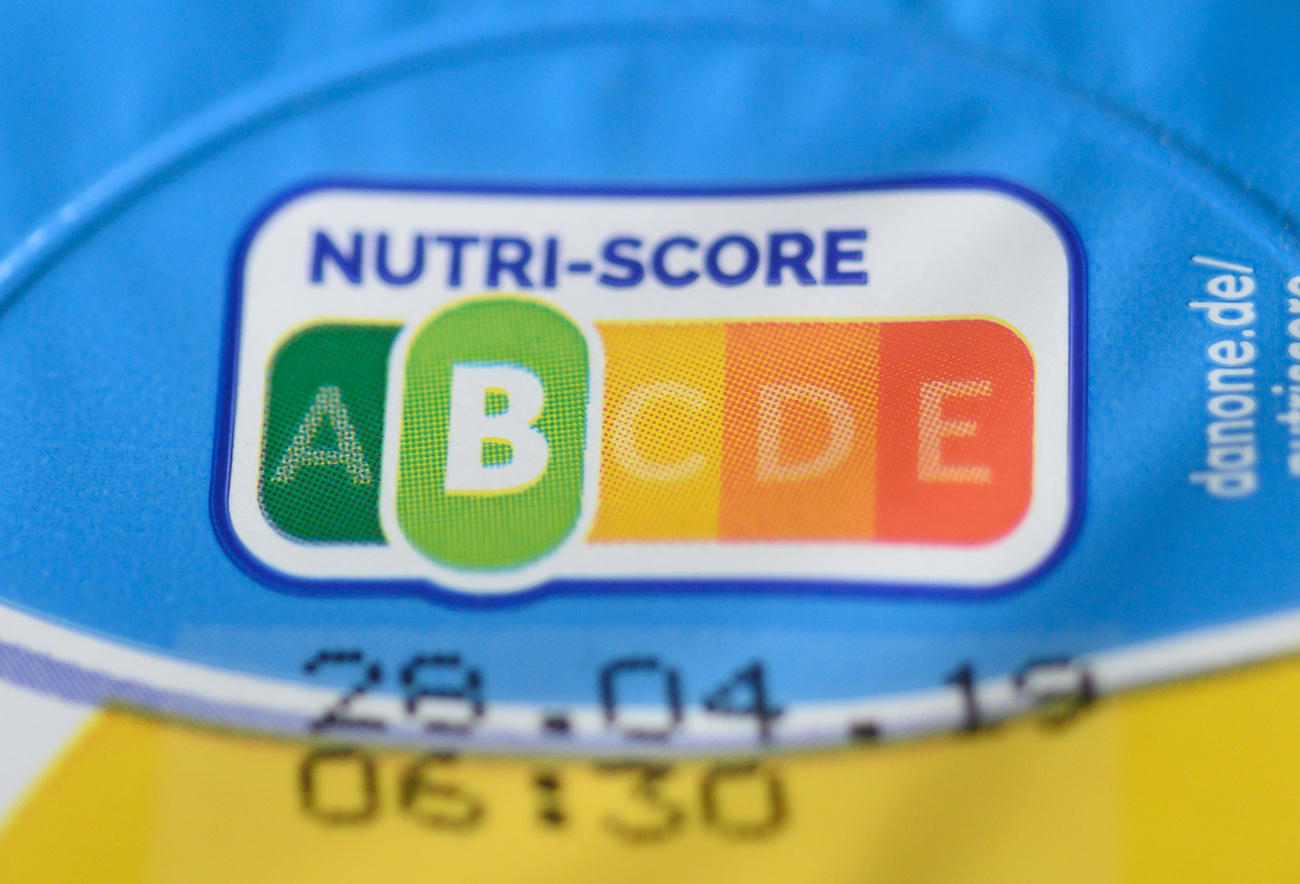
Nestlé to introduce Nutri-Score scheme

The Swiss-based multinational Nestlé has announced plans for the gradual introduction of a nutritional profile system for its food and beverage products sold in continental Europe.
Senior company officials are quoted as saying the ‘traffic light’ labelling scheme, which rates products on their sugar, sodium and fat levels, would be fully implemented in Switzerland, France and Belgium over the next two years.
Health authorities in these countries have recommended the use of Nutri-Score and several consumer groups have also come out in favour. This past spring the Swiss Office of Food SafetyExternal link indicated support for the food labelling scheme.
Details on the roll-out plans are to be announced later this year.
“Europeans are increasingly eager to know what is in the food and beverages they consume. We want to provide them with easy-to-understand nutritional information and to do this quickly,” said Marco Settembri, chief executive officer of Nestlé Europe.
Nestlé was part of a group of multinationals, which refused to adopt Nutri-Score and tested a rival system, but it soon suspended its trials and now appears to have changed its policy.
Following the adoption of the system by other companies, including Danone, Nestlé said it believes it is time to build broader momentum in Europe.

More
Former Nestlé boss defends food industry’s past and maps future

In compliance with the JTI standards
More: SWI swissinfo.ch certified by the Journalism Trust Initiative




























You can find an overview of ongoing debates with our journalists here . Please join us!
If you want to start a conversation about a topic raised in this article or want to report factual errors, email us at english@swissinfo.ch.